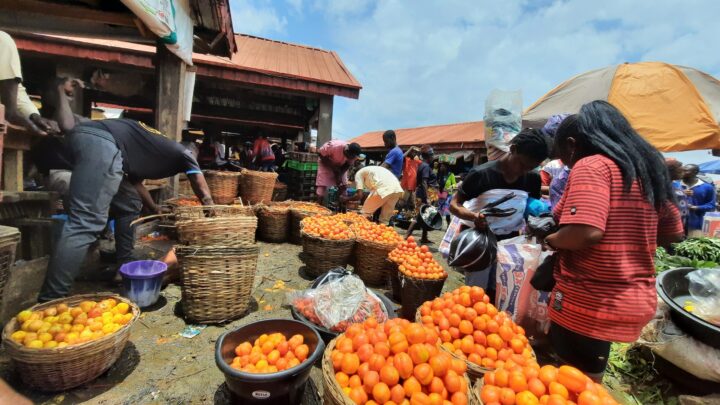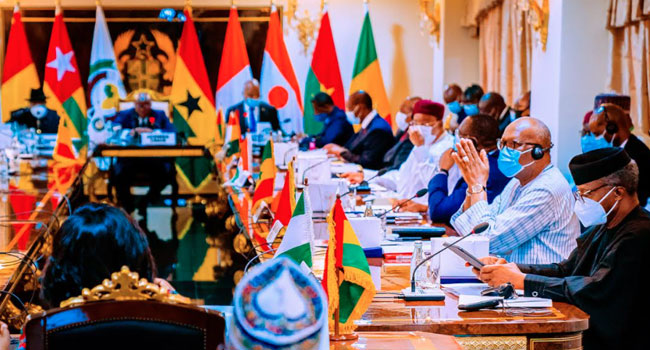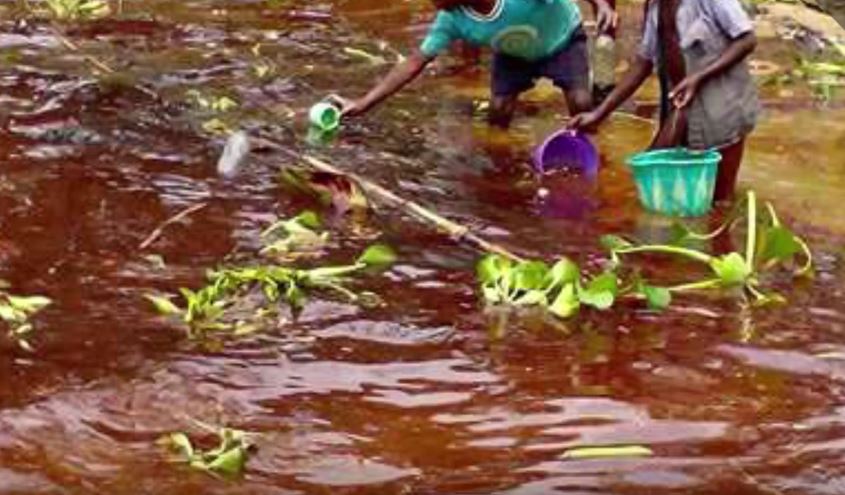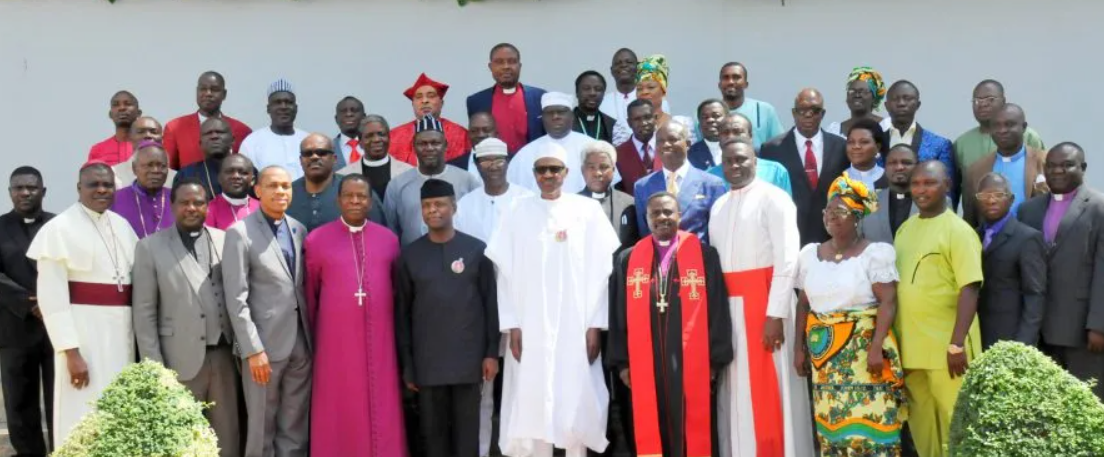Oke-Odo tomato section, Lagos
Before the Russian-Ukraine military hostilities, forces like climate change, COVID 19, and political conflicts contributed to an ongoing global food shortage. Today, the situation is much worse.
A report by the Food and Agriculture Organization (FAO) of the United Nations reveals that around 193 million people in 53 countries or territories suffered acute food insecurity in 2021. This represents an increase of nearly 40 million people compared to the record numbers of 2020. FAO predicts a “grim outlook” for 2022.
So far, this forecast holds. The World Food Programme (WFP) estimates that up to 811 million people go to bed hungry every night and that the number of those facing acute food insecurity has more than doubled. What does that mean for Africa?
Before now, FAO anticipated food deterioration in Northern Nigeria, Yemen, Burkina Faso, Niger, Kenya, South Sudan, and Somalia. Even though the body attributes part of the blame to climate change, it also references the Putin-Zelensky brawl. However, as with every cloud with its silver lining, the bleak forecast could present light at the end of the tunnel for the global south.
Advertisement
There have been moves to find fast, sustainable solutions to fight the looming hunger hurricane. Unfortunately, this comes with consequences. For instance, a sharp rise in the demand for fertilisers has, naturally, led to prices going through the roof. Despite higher food prices, fertilisers are now at their least affordable worldwide.
As Russia and Ukraine, two of the world’s leading fertiliser exporting countries, engage in exchanging hostilities, countries like Nigeria have decided to seize the opportunity and quickly think outside the box.
For example, the country’s timely investment in a fertiliser plant inaugurated in March is expected to produce 3 million metric tons of granulated urea annually. A far cry from Russia’s annual 11 million tons, but it is a decent start compared to its African counterparts. This has set Nigeria as Africa’s leading fertiliser producer and will move the country up the charts of the world’s top fertiliser exporting countries. Currently, nations like Tunisia and South Africa have a developed fertiliser industry, while Morroco, Egypt, Algeria, and Nigeria contribute to 88.7 percent of globally exported fertilisers in value.
Advertisement
Some critics worry that the surge in global fertiliser prices may worsen food security, especially for local farmers who depend primarily on imports. In their arguments, the price shock may be buffered for farmers in some developing countries with fertiliser subsidy regimes in places like Ghana. However, those regimes will place tremendous fiscal pressure on budgets already stressed by substantial government outlays during the COVID-19.
The low income across African countries worsened by climate change has done nothing to allay their fears. Of a truth, these concerns barely hold water.
Countries like Nigeria, once title holder of the “poverty capital of the world,” are expected to end dependence on imported products soon to propel local fertiliser productions. Questions of increasing food insecurity in the presence of local productions need not be asked.
Instead, it must set successful solution models for other African countries to emulate.
Advertisement
While famine is inevitable, especially as the world plunges into political conflicts and natural catastrophes, creating local solutions that solve national and global crises is the key to wealth. Strengthening the resilience of African economies calls for exploring fertiliser and other resources export markets and investing in infrastructure development. This will optimise the production of resources to make the best of emerging economic opportunities and solve the looming food crisis.
Claire Mom is a Nigerian journalist. You can reach her via email at [email protected] or Twitter @speakclairely_
Views expressed by contributors are strictly personal and not of TheCable.






